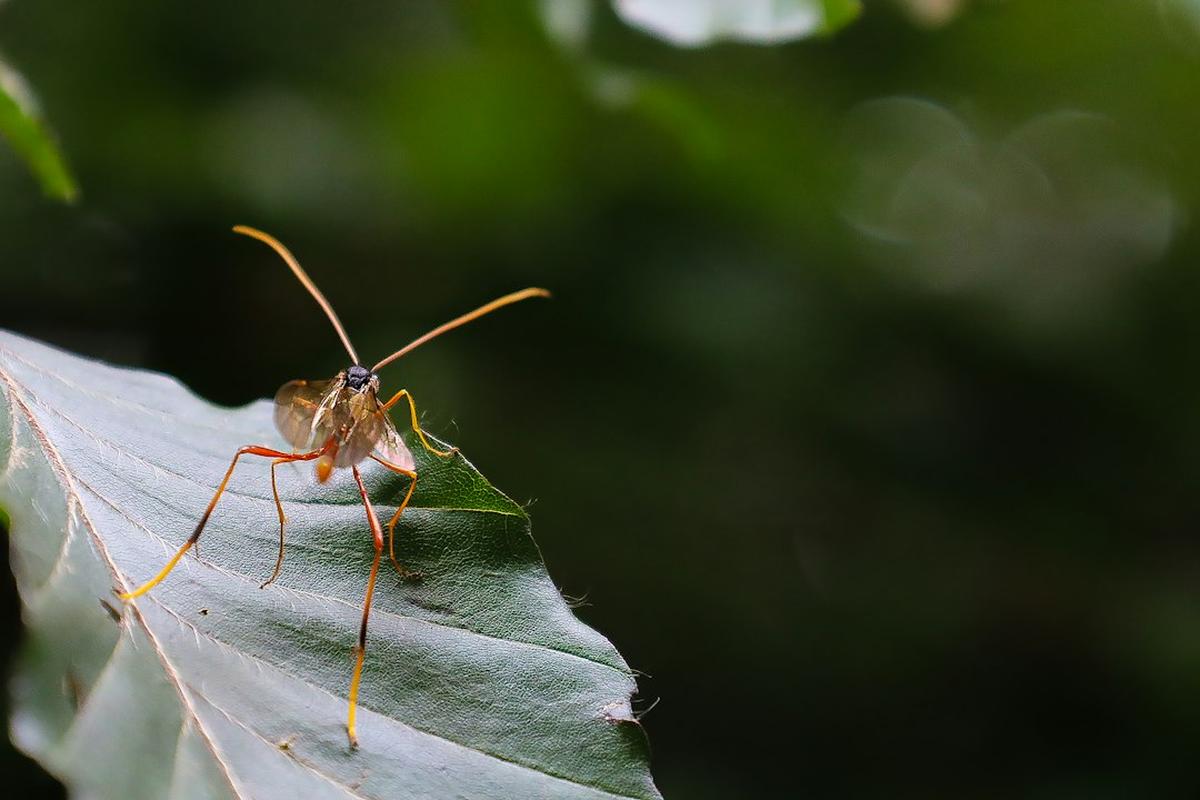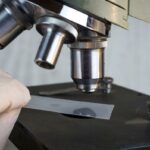Embarking on a journey towards a Biology PhD program is a significant step in the academic and professional life of any aspiring biologist. This advanced degree offers a platform for individuals to delve deeper into the world of biology, conducting research, and contributing to the scientific community. However, the competitiveness of these programs can be daunting. Understanding the competitive landscape of a Biology PhD program is essential for prospective students to navigate the application process successfully and prepare for the challenges ahead.
The Current State of Biology PhD Program Competitiveness
The competitiveness of Biology PhD programs varies widely, but it is generally high. According to data from the National Science Foundation (2018), the acceptance rates for these programs can be as low as 10%. This competitiveness is driven by several factors, including the prestige of the institution, the quality of the program, and the availability of funding.
The number of applicants also plays a significant role in the competitiveness. As more students pursue advanced degrees in biology, the pool of applicants becomes larger and more qualified, increasing the competition. Moreover, the growing emphasis on interdisciplinary research in biology has led to a surge in applications from students with diverse academic backgrounds, further intensifying the competition.
The Admission Process for a Biology PhD Program
Admission into a Biology PhD program is a rigorous process that involves multiple components. The basic requirements usually include a bachelor’s degree in biology or a related field, a strong academic record, and satisfactory scores on the Graduate Record Examination (GRE). However, these are just the minimum requirements.
Undergraduate performance is a critical factor in the admission process. Admissions committees look for students who have excelled in their coursework, particularly in advanced biology courses. A strong foundation in biology is essential for success in a PhD program.
Research experience is another crucial component of the application. It demonstrates the applicant’s ability to conduct independent research, a skill that is central to a PhD program. The more substantial the research experience, the better the chances of acceptance.
Recommendation letters and personal statements also carry significant weight in the admission process. They provide insight into the applicant’s character, motivation, and potential for success in a PhD program. A compelling personal statement and strong recommendation letters can tip the scales in favor of the applicant.
Time Commitment for a Biology PhD Program
A Biology PhD program is a significant time commitment. On average, these programs take about five to six years to complete. However, the duration can vary depending on several factors, including the nature of the research project, the student’s progress, and the requirements of the program.
During this time, students must balance a variety of responsibilities, including coursework, research, and teaching. This requires excellent time management skills and a high level of dedication. It’s not uncommon for students to spend long hours in the lab, especially as they get closer to completing their dissertation.
The Role of Funding in Biology PhD Program Competitiveness
Funding plays a crucial role in the competitiveness of a Biology PhD program. Most programs offer funding to their students in the form of research assistantships, teaching assistantships, or fellowships. However, the availability of funding can vary significantly between programs, affecting their competitiveness.
The impact of funding on acceptance rates is substantial. Programs with more funding can accept more students, while those with less funding may have to be more selective. Therefore, securing funding is a critical part of the application process. Strategies for securing funding include applying for external scholarships and grants, and targeting programs with strong funding records.
The Impact of Faculty Advisors on Biology PhD Program Competitiveness
Faculty advisors are a pivotal part of a Biology PhD program. They guide students through their research projects, provide academic advice, and help them navigate the challenges of the program. The availability of faculty advisors can significantly affect the competitiveness of a program.
Programs with a large number of faculty advisors may be able to accept more students, thereby reducing the competitiveness. On the other hand, programs with fewer faculty advisors may be more competitive. Therefore, when applying to a Biology PhD program, it’s important to consider the availability of faculty advisors in your area of interest.
Strategies to Improve Chances of Acceptance into a Biology PhD Program
There are several strategies that prospective students can employ to improve their chances of acceptance into a Biology PhD program. Enhancing academic credentials is one such strategy. This could involve taking additional coursework, pursuing a master’s degree, or gaining more research experience.
Gaining relevant research experience is particularly beneficial. It not only strengthens the application but also provides valuable skills and knowledge that will be useful in the program. This could involve working as a research assistant, conducting independent research, or completing a research-based master’s degree.
Crafting compelling personal statements and securing strong recommendation letters are also critical. These components of the application provide an opportunity to showcase your passion for biology, your commitment to research, and your potential for success in a PhD program.
The Job Market for Biology PhD Graduates
The job market for Biology PhD graduates is highly competitive. According to a report by the American Society for Cell Biology (2019), the number of Biology PhD holders far exceeds the number of available academic positions. This has led to intense competition for these positions and has prompted many graduates to seek opportunities outside academia.
However, the skills and knowledge gained in a Biology PhD program are highly valuable in a variety of sectors, including biotechnology, pharmaceuticals, and healthcare. Therefore, despite the competitiveness of the job market, Biology PhD holders have a wide range of career options.
The competitiveness of the job market also influences the competitiveness of Biology PhD programs. As the job market becomes more competitive, more students are pursuing PhDs in hopes of gaining a competitive edge, thereby increasing the competitiveness of these programs.
Final Remarks
Final Remarks, the competitive landscape of a Biology PhD program is shaped by a variety of factors, including the admission process, the availability of funding, and the job market. Understanding these factors can help prospective students navigate the application process and prepare for the challenges of a Biology PhD program. Despite the competitiveness, a Biology PhD offers a rewarding journey of discovery and a platform to contribute to the advancement of biology.
Frequently Asked Questions
Biology PhD program
Embarking on a journey towards a is a significant step in the academic and professional life of any aspiring biologist. This advanced degree offers a platform for individuals to delve deeper into the world of biology, conducting research, and contributing to the scientific community. However, the competitiveness of these programs can be daunting. Understanding the competitive landscape of a Biology PhD program is essential for prospective students to navigate the application process successfully and prepare for the challenges ahead.
What is the acceptance rate for Biology PhD programs?
The acceptance rate for Biology PhD programs can be as low as 10%, according to the National Science Foundation (2018). However, the rate varies widely depending on the program and institution.
What factors contribute to the competitiveness of Biology PhD programs?
Several factors contribute to the competitiveness, including the prestige of the institution, the quality of the program, the availability of funding, and the number of applicants.
What are the requirements for admission into a Biology PhD program?
The basic requirements usually include a bachelor’s degree in biology or a related field, a strong academic record, and satisfactory scores on the Graduate Record Examination (GRE). Additional factors, such as research experience, recommendation letters, and personal statements, also play a significant role.
How long does it take to complete a Biology PhD program?
On average, a Biology PhD program takes about five to six years to complete. However, the duration can vary depending on several factors, including the nature of the research project, the student’s progress, and the requirements of the program.
How does funding affect the competitiveness of a Biology PhD program?
Funding plays a crucial role in the competitiveness of a Biology PhD program. Programs with more funding can accept more students, while those with less funding may have to be more selective.
What is the job market like for Biology PhD graduates?
The job market for Biology PhD graduates is highly competitive, particularly for academic positions. However, the skills and knowledge gained in a Biology PhD program are highly valuable in a variety of sectors, including biotechnology, pharmaceuticals, and healthcare.
References:
- American Society for Cell Biology. (2019). The state of the life sciences job market. ASCB.
- National Science Foundation. (2018). Doctorate recipients from U.S. universities. NSF.
- National Institutes of Health. (2017). Graduate student funding. NIH.
- The Princeton Review. (2020). Getting into grad school. The Princeton Review.








